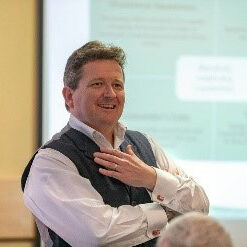[vc_row][vc_column][vc_column_text]
3,000 Miles – 2 Guys – 1 Boat
More people have climbed Everest than have rowed the Atlantic
Sleep Deprivation and Exhaustion:
Rowing 24 hours, 7 days a week, in a 2 hour on/off shift pattern for 3,000 miles.
Isolation the mental challenge
By day three lost sight of all land and other competitors in the vastness of the ocean.
Extreme Weather Conditions:
Although you cannot be over prepared for a voyage you are at the mercy of the elements, 30-40 ft. waves, storms, extreme range of temperatures.
Vulnerability:
Whales and Sharks, shipping lanes, collision course for vessels 30x the size of our rowing boat.
Health Issues
Salt sores, blisters/infections, muscle damage and depletion
In December 2018, Dan and Tony (Team Second Chance) will be stepping off the dry land of San Sebastian in La Gomera, Canary Islands (28°N 18°W), embarking on one of the greatest endurance challenges on earth.
For the next 40plus days they will be rowing a 7.5 metre long and 1.8 metre wide boat 24 hours a day, equipped with all the food, water, and navigation equipment they’ll need to cross the Atlantic under their own power, the destination being more than 3,000 nautical miles West, to Nelson’s Dockyard English Harbour, Antigua (17°N 61°W).
What is the Challenge:
In 1966 Sir Chay Blyth rowed across the North Atlantic with John Ridgway from Cape Cod, on the North American Coastline, to Ireland. Their epic journey took place in a 20ft open dory named the “English Rose III” and during their 92-day passage they faced hurricanes, 50ft waves and a near starvation diet. Their voyage was a challenge, a test of strength and endurance and an opportunity that just had to be taken up. The journey is fierce and the route transcends time zones and global currents to cross the Atlantic Ocean.
What sort of Boat will you be in:
The Challenge is raced in boats that are approximately 7.5 metres long and 1.8 metres wide, meaning that the pair will not have much space to move freely on board. The boat is self-righting and has one cabin, which acts as the only protection against the elements.
It is these obstacles and hazards which present Dan and Tony with the most taxing physical and mental demands; waves, heat, salt and currents are just a few of the weapons Mother Nature can employ to disturb progress.
It takes a certain kind of person to keep going when faced with blisters, salt rash and sharks
Why is it referred to as the Greatest Challenge:
“You can’t just quit the challenge” or “If you are running marathons in the desert or cycling across America, you could just stop. The Atlantic Challenge doesn’t facilitate that. If you abandon your boat, you are saying goodbye to a long campaign which will have involved years of planning, sacrifice and hard work. It’s a lot more difficult to quit but this is part of the reason the event is so popular among elite athletes; it aims to push the psychological and physical barriers.
It’s no surprise then that more people have been into space, or climbed Everest than have rowed the Atlantic.
Who Are Team Second Chance:
Team Second Chance consists of two ordinary guys who believe that everybody is entitled to a second chance in life. We felt that embarking on something extraordinary, to support two special charities, by entering one of the toughest races on earth was the way forward.
Dan is the Managing Director of a strategic communications and public affairs consultancy in the UK. He is also involved in several trusts and fundraising initiatives where he puts his skills in communications, event management and networking to best effect. Outside of work, he has competed in various sports including at a professional level in Thai boxing.
Tony served 23 years in the Territorial Army Bomb Disposal Unit. In 2006 whilst conducting commercial operations in Lebanon, a command detonated explosive device functioned under Tony, the blast caused several life threating injuries including, the loss of his Right leg below the knee and a severe case of pneumonia. Tony’s determination enabled him to return to full work within six months, which he continues to this day, Program Managing Explosive Ordnance clearance in Iraq.
Dan and Tony are no strangers to extreme challenges or raising significant funds for charity. In 2013 they took part in a rowing race, pitting two crews against each other, to row 500 miles from London to Paris, raising £122,000 for The Ickle Pickle Children’s Charity and Help 4 Heroes.
Together Tony and Dan are Team Second Chance, a team with the right blend of skills to run an effective campaign, and the determination to win the Challenge. Importantly they aim to raise over £500k for charity.
Chosen Charities[/vc_column_text][/vc_column][/vc_row][vc_row][vc_column width=”1/2″][vc_column_text]Founded in 2009, the Ickle Pickles Children’s Charity raises money for vital equipment that keeps the smallest and most sickly babies alive. Working with Neonatal Units across the UK, the charity enables parents to repay a debt of gratitude to the NNU that treated their child, or to ensure a child’s short life is commemorated in a positive and tangible way. The charity also raises awareness of the incredible job that Neonatal units and staff do every single day.[/vc_column_text][/vc_column][vc_column width=”1/2″][vc_column_text]Care after Combats support veterans with alcohol and substance misuse problems and the reduction in the numbers of re-offending veterans in the criminal justice system. The Phoenix project aims to reduce the number of re-offending veterans released from prison and our Footprints alcohol intervention programme helps veterans regain their lives from the grip of alcohol and substance misuse.[/vc_column_text][/vc_column][/vc_row]



I found your internet site from Google and I need to state it was a wonderful locate.
Many thanks!